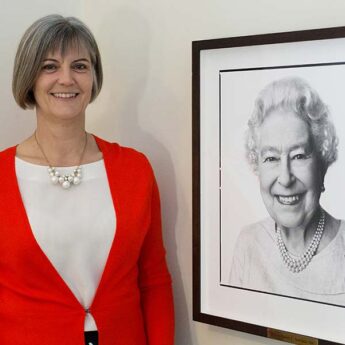Lord Patten on today’s big issues
• US will continue to play major role
• China not rising as fast as some believe
• EU exit would be unwise for Brits
Confronted by fears over the future of Britain and its relationship with the European Union, as well as the seemingly inexorable rise of China and the consequent contraction of the United States, Lord Patten of Barnes is more sanguine.
Common sense will prevail in the UK, he believes. The decline of the US is much exaggerated, and China, for all is bombast, faces some serious issues in the immediate future.
At the invitation of Ambassador Tim Hitchens CMG LVO, Lord Patten spoke at the British Embassy Tokyo last year, as part of a series of lectures featuring prominent British political leaders, thinkers and artists.
Following his role in the 1980s as a minister in the cabinets of Prime Minister Margaret Thatcher, Chris Patten served as chairman of the Conservative Party for two years from 1990.
He then became Britain’s last governor of Hong Kong—where he was affectionately known as Fat Pang—until the territory was handed back to China in 1997. Subsequently, he served as European commissioner for external relations. Patten is the chancellor of the University of Oxford and, since 2011, has been chairman of the BBC Trust.
Lord Patten prefaced his speech by mentioning how, while some say we have never lived in more dangerous times, he grew up in the darkest days of the Cold War and the threat of “mutually assured destruction” posed by nuclear weapons.
“When I went up to Oxford in 1962, my first term coincided with the Cuban Missile Crisis, when the world teetered on the edge of nuclear Armageddon”, Patten said. “So it is difficult for me to accept that we live in a world that is more dangerous than that”.
He agreed, however, that, “We do live in a more uncertain and less stable world than the one dominated by the international security strategies of the US and its partners, along with the Soviet Union”.
The demise of Communism in the Eastern Bloc, the emergence of non-state actors, intense regional conflicts, a waning of Washington’s influence and the potential fragility of the global economic system, as demonstrated by the Lehman shock, mean that “we now live in a very different world”, he said.
“It is no longer economically and politically dominated by the trans-Atlantic partnership and Washington’s relations with Japan”, he said. “Certainties have been shredded”.
Whereas the US accounted for 38% of global gross domestic product when Patten first visited the country in 1965, that proportion had declined to 30% in 2000, and 23.1% by 2010. In tandem with the decline, China has been rising on the back of a cheap workforce and overhead costs.
But Lord Patten does not believe the economies of the rest of the developed world are played out and that China will be the undisputed victor in the 21st century.
That, he said, is the declinist argument.
“The US remains an astonishingly successful economy and, more than any other, is able to turn technology into highly profitable corporations”, he said. “We have also seen the re-emergence of the US manufacturing industry; that will pick up speed as the US becomes energy-independent from fracking”.
He added that a growing population, 42 of the best 50 universities in the world, and the ability to attract the “best and the brightest” will continue to mean that “the United States is the only country that matters everywhere”.
“It may not be able to get its own way on everything, like it did in the past, and maybe it cannot dominate the international agenda as it once did, but it is impossible to think of an economic, military or security issue that can be solved if the US is not involved”, he said.
Turning to the situation in Europe, Lord Patten pointed out that, while the continent accounts for around 7% of the world’s population and 25% of global output, that is overshadowed by its 50% of global spending on social services.
On a more positive note, the most recent forecasts suggest that Britain is likely to have the largest economy in Europe by 2040, although Brits still have a love-hate relationship with the single currency and the EU in general.
“We joined the Common Market later than we should have done and we’ve been struggling ever since with some of the institutions that were created before we joined”, he said.
“There has also been a reluctance to fully engage with the single market, because it is seen as “a lamentable intrusion into our national sovereignty”, he added.
Nevertheless, should Britain’s participation in the EU be put to a referendum, Lord Patten is optimistic of the outcome.
“My own view is that those who want us to leave the EU should listen to the evidence put forward by our friends in the US and Japan”, he said. “The conclusion is that it would be a pretty rum thing for us to do”.






